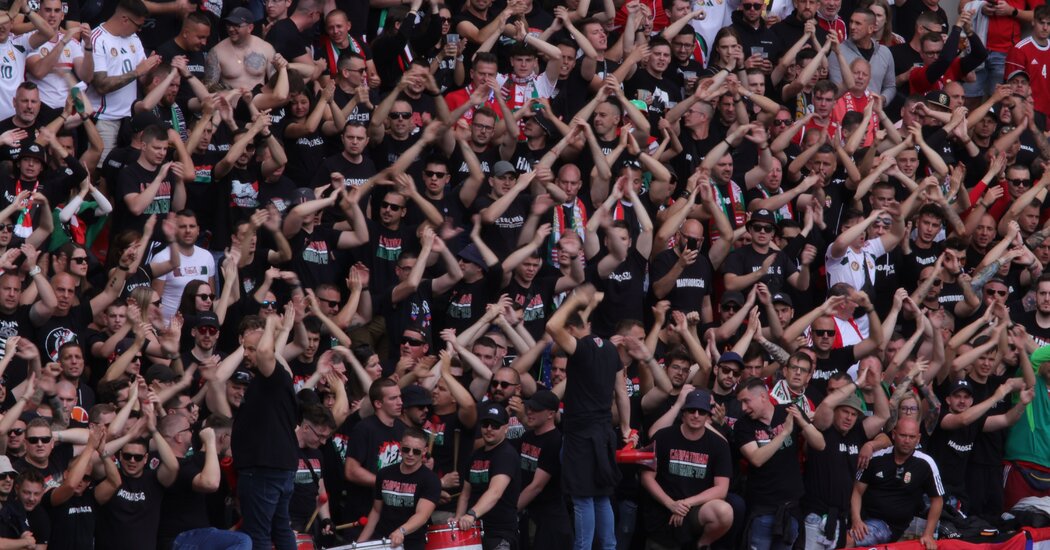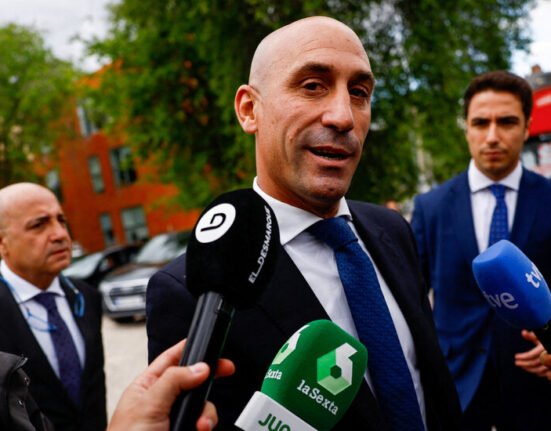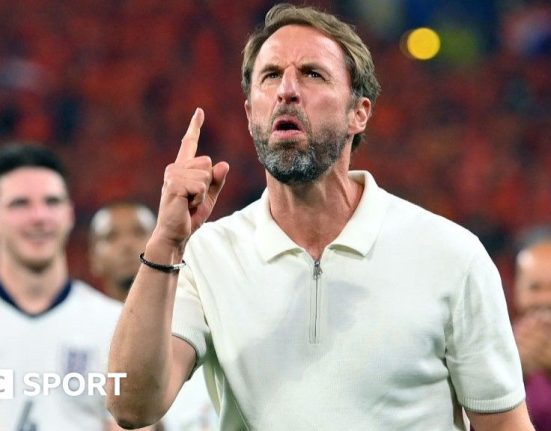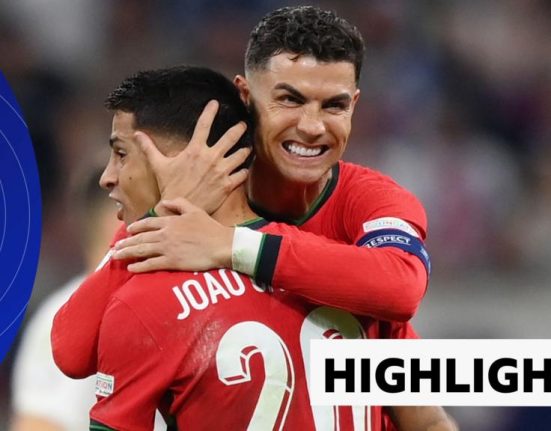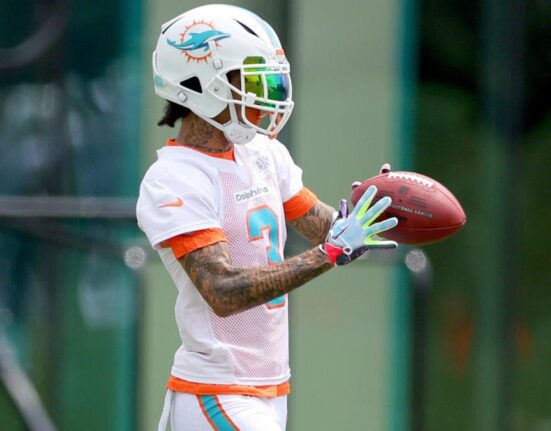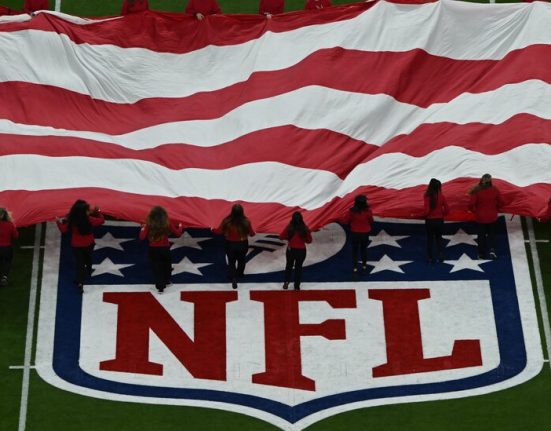The instructions were concise and clear.
Those hoping to march to the stadium with Hungary’s fans for their soccer team’s first game of the European Championship were expected to report by 10 a.m. sharp, five hours before kickoff.
A strict dress code would apply. Some could wear black. Others were to stick with red, white and green, the colors of the country’s flag. Under no circumstances was there to be any flashiness. “Gaudy colors, clown hats and bagpipes” were all prohibited. They were, prospective marchers were reminded, “going to a soccer stadium, not a circus.”
The hectoring and slightly priggish tone felt jarring, considering the source of the orders: the official Facebook page of the Carpathian Brigade, a virulently nationalistic faction of hard-core fans — ultras, as such groups are known — that provides the Hungarian national team with its vociferous and volatile backing.
The Carpathian Brigade has, in recent years, become perhaps Europe’s most infamous ultra group, its reputation forged by clashing with the police, showering opponents with racist abuse and displaying homophobic banners. In 2021, during the last European Championship, it had to remind members to cover up any Nazi-related tattoos so as not to contravene German law.
None of that has stopped its growth. If anything, it has accelerated it. Drawn by the Carpathian Brigade’s voluble Hungarian patriotism and unabashed right-wing values — an ideology that both echoes and trumpets the populist rhetoric of Viktor Orban, the country’s prime minister — the group may now be able to call on as many as 15,000 members.
It is also not alone. Black-clad ultras have been a fixture at Euro 2024 this month, with detachments — sometimes numbering a few hundred, sometimes a little larger — visible across Germany and at games involving Albania, Croatia, Romania and Slovakia, among others.
Though some of those groups were formed as a response to the Carpathian Brigade, in most cases they do not share either its motivations or its precise political agenda, and none carry quite the same air of menace.
Their presence at the Euros, though, has been an issue for UEFA, European soccer’s governing body, which has levied fines on a number of countries during the tournament, including multiple punishments for “transmitting provocative messages not fit for a sports event.” The groups do not just provide a soundtrack and a visual spectacle whenever and wherever their national teams play, they also hint at the rising tide of nationalism across Europe.
“It is contagious,” said Piara Powar, the executive director of Fare, an anti-discrimination network that monitors extremism within soccer. “For a lot of them, it is theater, more than anything. But you have to be careful playing with this stuff, because the Hungarians are playing for real.”
The Carpathian Brigade’s power is, certainly, unrivaled. In Cologne, as the group had demanded, the march to the stadium this month was an orderly affair. There was no violence, and no bagpipes.
A few days later, when Hungary faced Germany in Stuttgart, the group pushed the boundaries a little. On that day’s march, the crowd sang the melody of Gigi D’Agostino’s “L’Amour Toujours,” a song banned in Germany because its lyrics are often twisted to “Ausländer raus,” or “Out with the foreigners.”
Such messaging, of course, fits with Mr. Orban’s worldview.
A huge soccer fan, he has long made the sport a central plank of his politics: Under his leadership, many of Hungary’s stadiums have been rebuilt, millions of dollars have been invested in clubs in areas of neighboring countries with large ethnic Hungarian minorities, and many of the country’s professional teams have been taken over by oligarchs close to his governing party, Fidesz.
He has also frequently offered his approval, tacit or otherwise, to the activities of the Carpathian Brigade, even as its actions have drawn fines and punishments.
The Hungarian authorities have, for example, persistently lobbied UEFA to stop Fare, the anti-discrimination group, from monitoring the national team’s games and attempted to have some of the Carpathian Brigade’s preferred symbols removed from Fare’s guide on ultranationalist imagery.
A spokesman for Szubjektiv, one of the few organizations in Hungary that works to promote diversity, suggested in an interview that the Carpathian Brigade’s actions — even when they draw sanctions — benefit Mr. Orban because they feed into his sense that “Hungary is being oppressed by the rest of Europe,” as well as providing a window into what Mr. Orban sees as the “brutal true nature” of Hungary.
The spokesman asked that his name not be published because of the fear of reprisals from the Carpathian Brigade.
That political backing is what differentiates the Carpathian Brigade from its rivals and imitators. The ultra groups that have coalesced around Albania, Croatia, Romania and the rest wear black shirts, too, but only because ultra groups all over Europe do. “It is a way of separating themselves from ordinary fans,” said Juraj Vrdoljak, a Croatian writer and former ultra.
While Mr. Vrdoljak acknowledged that most ultras leaned to the right, politically — “We cannot pretend otherwise,” he said — few are as willing as the Carpathian Brigade is to express such a noxious blend of racism, antisemitism and homophobia.
Mr. Vrdoljak said that most ultras rejected all forms of authority and oversight, and saw their country’s soccer authorities, and frequently their governments, as “the main enemy.” Last year, Croatia’s largest ultra groups, which follow various club teams, came together and decided to allow their members to attend national team games for the first time since 2016. “They wanted a way to be visible, to make their message heard,” Mr. Vrdoljak said.
The same is true for Romania: During the country’s first game in Euro 2024, its ultras unveiled a banner protesting their own persecution. Ultras who for years disdained the national team are present in Germany to “show people we need to be against the police and against the federation,” said Cosmin, a Romanian ultra interviewed before that game in Munich who would give only his first name for fear of attracting the attention of the authorities.
While Romania’s ultra factions have resisted the attempts of the far-right presidential candidate George Simion to associate himself with them — “Maybe he went to a few games, but he is not an ultra,” Cosmin said — they have a defined nationalistic streak.
This year, a game against Kosovo was almost abandoned because of persistent chants from Romania’s ultras asserting that Kosovo belonged to Serbia and that “Bessarabia” — its eastern neighbor Moldova — belonged to Romania.
In Germany, Romanian supporters have displayed the flag of Greater Romania, a geographic construct that denies neighboring Moldova its sovereignty. At other matches, that sense of grievance over history or geography has emerged via standards championing Greater Albania, Greater Serbia and, of course, Greater Hungary.
Mr. Orban, who often travels abroad to cheer on his country’s national team, sometimes wears a scarf featuring a map of Greater Hungary, which includes former Hungarian territory that is now within the internationally recognized borders of Ukraine and Romania.
Those motifs have caused a headache for UEFA, which has spent much of the first two weeks of the tournament handing out fines to participating soccer federations as punishment for nationalist displays by their fans. (The bill for Albania’s federation, for example, could soon surpass $100,000 after its supporters — already accused of nationalist chanting in two previous games — pushed the limits for the third straight match on Monday.)
Mr. Powar said the surge in provocative expressions of nationalism was probably not an issue that soccer’s authorities would be able to solve with financial penalties alone.
“Russia’s war in Ukraine has created a real sense of jeopardy” for countries in Central and Eastern Europe, Mr. Powar said. But just as significant, he said, is that it has offered encouragement, too, to those — like Mr. Orban’s unofficial foot soldiers in the Carpathian Brigade — who see in it an opening to express their own territorial ambitions.
“For a long time, this ‘Greater Hungary’ was something that even Orban did not talk about,” said the spokesman for Szubjektiv. “Now it is a bumper sticker you see on maybe one in every five cars. It is on the wall in lots of offices.”
“The ultras allow you to put on a black T-shirt and feel part of something,” he added. “We will see it more and more.”
Andrew Higgins and Andrew Das contributed reporting.



